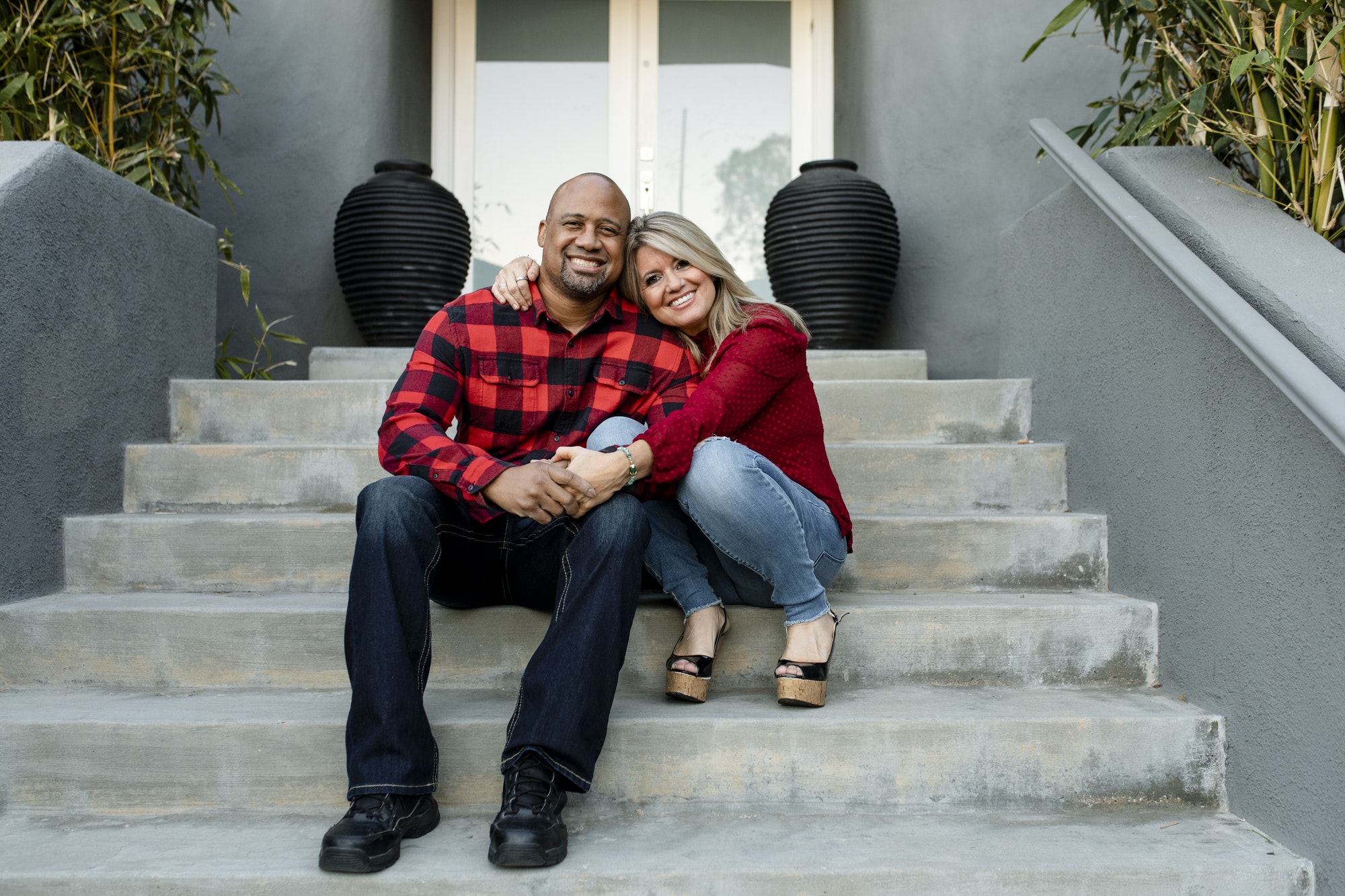

Overcoming codependency is one of the biggest challenges that people in relationships are facing today. Though is it so common, it is unfortunately one of the biggest relationship killers and it’s very important to learn how to overcome it.
Not only can it damage your relationship, it can start to really have a negative effect on your life and your sense of wellbeing.
As a dedicated love and relationship coach, I work with people every single day who are struggling with overcoming codependency, so I wanted to write this article for you today on what you can start doing today to win this battle!
You don’t have to let these feelings run your life and threaten your relationship with the one you love! You’re in control of more than you might realize, and you are in the right place to find out everything you need to know about overcoming codependency.
I am going to go over where these feelings come from, what the real signs of codependency are, and what you can do about them!
When there is an issue, there is always a root. So perhaps you’ve found that it feels like you depend on your partner for your happiness, and it’s creating quite an imbalance in the relationship. You might even see that tensions have started to rise between you and your significant other because of this issue.
So when I begin working with someone who is struggling with codependency in their lives, I always begin by working on zeroing in on where the codependency is coming from.
There can be all kinds of different reasons why people might begin to struggle with overcoming codependency in their relationships. For some, it’s a result of their upbringing. Perhaps the example they had at home was that one parent was very emotionally dependent on the other, and the kids grew up feeling that this was the norm.
When they develop relationships of their own, they start to realize that there is an imbalance. They can start to experience a codependent relationship, or they can start to see that they are unable to be happy without their partner by their side.
In other cases, the issues stem from previous relationships. When a person goes through a traumatic experience with an ex, it is normal that they would start to develop insecurities in their future relationships, which then leads to them seeking constant reassurance from their partner.
If you feel that you’re really struggling with overcoming codependency, I would highly recommend reading a book called Codependent No More by Melody Beattie.
And if you’re unsure if you’re codependent or if you’re just feeling insecure in the relationship at the moment, let’s take a look at the signs.
I’ve been working with people in these situations for a very long time, so I have been able to pinpoint various indicators of a co dependent person. Now, if you recognize the signs I’m about to go over, don’t panic!
It doesn’t mean that you cannot make changes that are going to create a positive shift in your life and in your relationship.

The biggest indicator of an issue with codependency is the inability to spend time away from your partner. Your happiness really depends on the one you love, and when you aren’t together, you aren’t at ease. You miss them so much that you can’t have fun without them, you can’t help but to feel that you’d be more at ease if they were with you, and in some cases, your mind even start to run wild with paranoid thoughts about what they might be up to.
Another sign to keep an eye out for is when you have a compulsive need to know where your partner is at all times, what he or she is doing, who they’re hanging out with, and for how long. It can also be an insatiable need to check their social media activity and even demanding to have their passwords to all of their accounts and devices.
I have to warn you against this type of controlling behavior, because it can undermine a relationship very fast…
It’s normal to have your significant other on your mind a lot when you’re beginning a relationship, but if you’ve come to realize that you think about your partner (and NOTHING else) all the time, it can be a sign that you’re struggling with codependency.
I often see people obsessing over their partners when they’re co-dependent, and in many cases, people will actually start to root their identity in their partner. This can also manifest in different behaviors like extreme jealousy, suspecting your partner of cheating or lying, even when they have no reason to feel this way.
Though it’s a dangerous thing, codependency can be overcome. Let’s take Rebecca for example. She’s someone I have been working with for a few months, and she when she first came to me, she was very codependent. She relied on her partner to fulfill her every emotional need, and when he wasn’t around, she was not happy. She always demanded that he be there with her at all times, to the point that he almost ended up breaking up with her.
Fortunately, she recognized her codependent behavior and knew that it was going to cause serious problems, and that she was pushing the man she loves away. She wasn’t sure if she was going to be able to overcome her codependency and break out of old patterns, but after a few sessions and some self help books like the one I mentioned above, she was able to prove to herself and to her boyfriend that she can enjoy being an emotional independent person in a relationship that fills both of them with joy.
So as long as you can identify the behavior, it is entirely possible to overcome codependency!
When it comes to overcoming codependency, the best possible thing you can do is to start focusing solely on yourself. A lot of people hear this and think, “Wait, I don’t want to become a selfish person!” But this isn’t about being selfish in a negative way; it’s about about personal development that will benefit your own life as well as your relationship.
The more you invest in yourself and commit to goals for yourself, the less time would will have to lean on and fixate on your partner!
So start by defining short term and long term goals for yourself. You can zero in on finding ways to manage the things you usually lean on your partner for. If you wait for him or her to go out and do things that are fun, make a commitment to getting out there and having fun on your own or with your friends.
If you depend on your partner for love and affection, go out and start doing things that make you feel better about yourself like hitting the gym, getting some new clothes, and doing things that make you genuinely feel good. Check out some new places in your town, do some yoga, and make time for your passions that make you feel alive. The more love and affection you give yourself, the better you will feel and what’s more, the more you will inspire your significant other to do the same for you!
If you depend on your significant other for finances, start thinking about what you can do to provide for yourself.
The best way to fix a problem is to get a clear idea of what it is exactly. A good way to do this is to analyze your attachment style. According to psychologist Mary Ainsworth’s studies (https://www.simplypsychology.org/mary-ainsworth.html), there are four:
• secure.
• anxious-preoccupied.
• dismissive-avoidant.
• fearful-avoidant.
According “Attachment Styles, View of Self and Negative Affect,” a secure attachment style is demonstrated by those possessing a positive view of self and a positive view of others. An anxious-preoccupied attachment style is demonstrated by those possessing a negative view of self and a positive view of others. A dismissive-avoidant attachment style is demonstrated by those possessing a positive view of self and a negative view of others, and a fearful-avoidant attachment style is demonstrated by those possessing an unstable fluctuating/confused view of self and others.
I would suggest researching how you attach to people so you can learn the way you love. It can give you a better idea of what kind of changes need to be made in order to overcome codependency issues.
How to know when a relationship is over : The 7 telltale signs
When you’re struggling with overcoming codependent behavior, it is important to make the choice to trust your partner every single day. If you’re constantly doubting them and you have no concrete reason to feel this way, you’re going to create tensions in the relationship that would be very easy to avoid.
Your mindset is extremely important, so make sure that you’re approaching the situation in the best way possible. Choosing to trust your partner will bring you a sense of peace (and the more you do this, the more natural it will begin to feel), and it will also change the dynamic between you two. It will make things feel lighter and more fun, and this will make your partner associate you more with positivity.
You can also do an exercise that I like to give my clients: writing in a Gratitude Journal. Create a mindset of abundance and not scarcity. Every time something positive happens that makes you feel good, write it down in this journal. It can be something that happened between you and your partner, something nice that someone said to you, a compliment you’ve received, something heartwarming that you witnessed, the list can go on and on.
Whenever you’ve feeling down or insecure, just open this journal to a random page and start reading all the nice things that exist in your life!
When we are codependent in relationships, it’s because we may feel “less than” in the eyes of our partner, our peers, or even in our own eyes. We may feel that we are not lovable, or worth committing to, so we seek constant reassurance that we are loved. So when it comes to overcoming codependency in relationships, the higher you can bring your sense of self, the less validation you will need from others (including your partner!)
So like I said above, start working on setting goals for yourself and reaching them. Put yourself in situations where you know you can excel. For example, if you’re quite talented at painting, attend some figure drawing classes where you can create something you’re proud of while doing something for YOU.
If you’re feeling insecure, I encourage you to download our brand new product on battling insecurity. To access it, all you have to do is click here.
You hold the key to success. All you need to do is make matters into your own hands, and decide that you’re going to build your sense of self confidence, while committing to goals you set for yourself. Find ways to manage the things you usually lean on your partner for and prove to yourself that you can provide for yourself! To take it a step further, I encourage you to check out our product on overcoming insecurity and lack of confidence in a relationship once and for all. To access it, all you have to do is click here.
And as this article comes to close, I want to leave you with one last tidbit of advice.
Confidence comes from a sense of accomplishment, so a surefire way to start feeling better about your life is to start filling it with things that you’re proud of. Not only will this boost your sense of self esteem, it’s going to make it much easier to steer clear of any type of codependency on your significant other!
As always, we are here to help so please don’t hesitate to get in touch with us for one on one guidance. Join the Happily Committed Project and learn how to transform your relationship in a meaningful and dignified way.
I sincerely wish you all the best in life and love.
You coach when you want to overcome codependency,

No spam, notifications only about news, events and updates.

“How long before moving in together?” This is a question I’ve been asked time and time again throughout my coaching sessions, and it’s no surprise!

A long time ago, he made a mistake that hurt you deeply. Your relationship was rocked by infidelity, but you put in the work to

Is your man dragging his feet when it comes to popping the question? In your mind, your relationship has long been ready for marriage, but

During my time as a love and relationship expert here at Happily Committed, I’ve seen every kind of relationship you can imagine. Everyone who comes
4 Responses
There are lots of things to learn, so much information on it.
King regards,
Thompson Valenzuela
Enjoyed reading the article above, really explains everything in detail, the guide
is extremely interesting and effective. Thank you and good luck
in the upcoming articles.
King regards,
Boswell Schneider
Great article. Couldn’t be write much better!
Best regards,
Boswell Dencker
Usually I never comment on blogs but your article is so convincing that I never stop myself to say
something about it. You’re doing a great job Ma,,Keep it up.
King regards,
Boswell Griffin